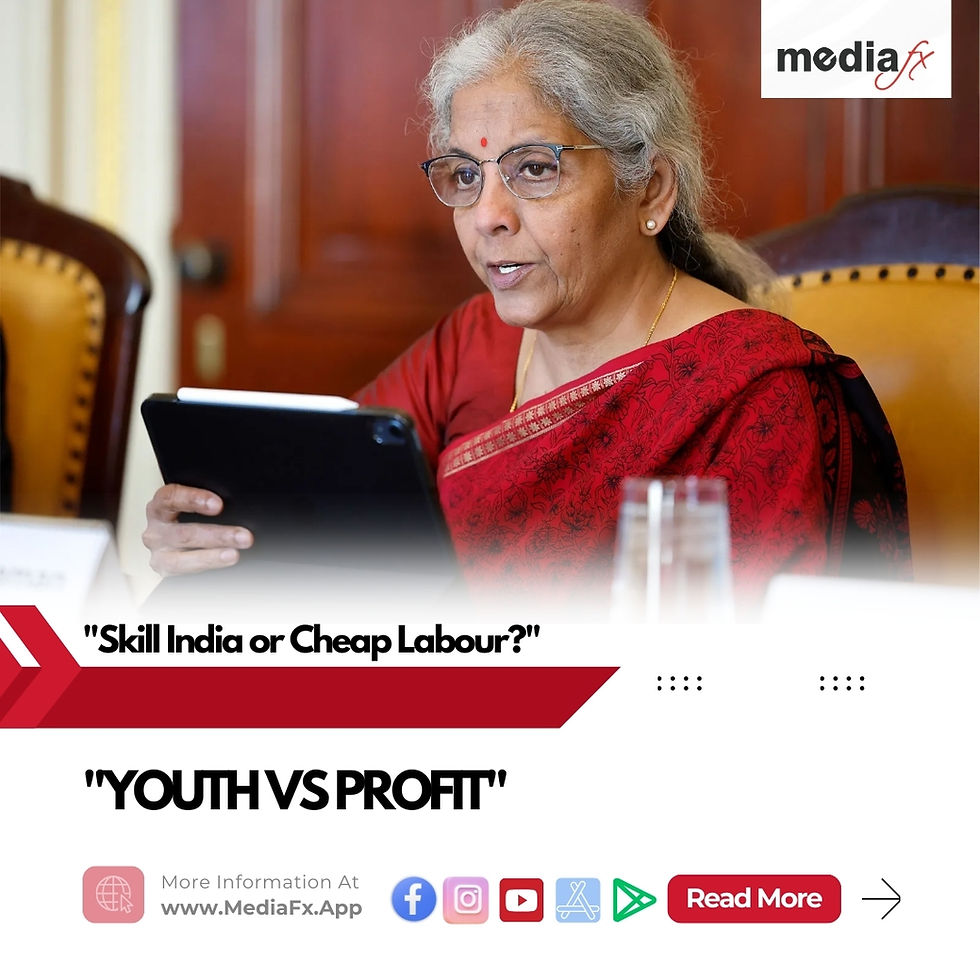"Sitharaman Calls Biz to Skill India – But Who Gains, Youth or Corporates?" 💥
- MediaFx

- Sep 18, 2025
- 2 min read
TL;DR: Finance Minister Nirmala Sitharaman has asked private companies to invest in training Indian youth. She says this will boost jobs and growth. But the question remains – are these reforms really meant to help students and workers, or just another way for corporates to get cheap skilled labour?

India’s Finance Minister Nirmala Sitharaman recently called on private companies to invest in skill development and partner with ITIs and training institutes. She argued that India’s growth story is incomplete without skilling the workforce.
With around 65% of India’s population under 35 years, India has the world’s largest youth base. But the harsh truth is that many graduates and ITI pass-outs struggle to find jobs because their training does not match industry needs. This is why the government is pushing for more upskilling programs to fill the #Jobs gap.
Sitharaman said the private sector must step in to make skilling more relevant. She pointed at reforms where industries can directly collaborate with Industrial Training Institutes (ITIs) to make training job-oriented.
She linked this push to India’s $5 trillion economy dream, saying skilled youth will power economic growth. But here’s the concern: will corporates really invest in youth for the people’s benefit, or will they just use skill programs to get low-cost labour while keeping profits high?
Right now, India’s unemployment rate is above 7% according to CMIE. Rural youth are hit even harder, as access to quality training is limited. Private involvement might improve training, but if education becomes too profit-driven, poorer students risk being left out.
Labour unions and student bodies argue that skilling should not become a business model. They insist the government should increase public investment in education instead of depending on private industry. Because if companies decide the curriculum, then only their business needs will be served – not the dreams of ordinary youth.
For example, in Germany, apprenticeships succeed because workers’ rights are protected and wages are fair. But in India, internships often mean unpaid labour with no guarantees. If this pattern continues, these reforms may only benefit corporates, not students.
What do you think? Should industries decide how India’s youth are trained, or should the government expand public-funded skilling so every student, rich or poor, gets a fair chance?
MediaFx People’s Take
From the people’s side, skilling is absolutely important, but it must not be hijacked by corporates. Training must be affordable, accessible, and linked to secure jobs with fair wages. Otherwise, these reforms are just another way to push youth into unstable contract jobs while big companies grow richer.













































